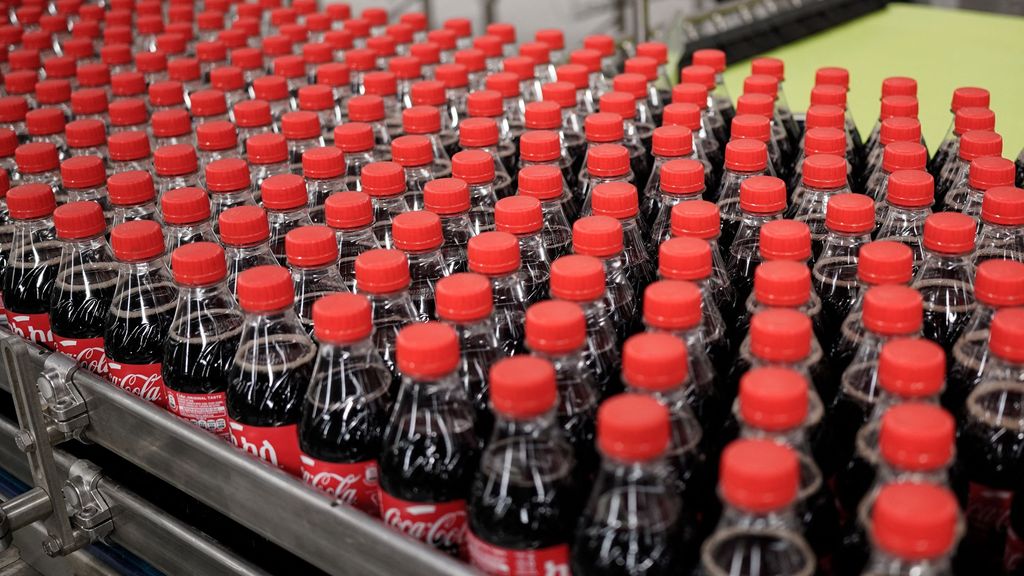
PA
ONS News••Amended
Isn’t this a contradiction for a company that sells soft drinks in plastic bottles as a sponsor of a climate summit? Coca-Cola is one of the sponsors of this year’s COP27 in Egypt. Pretty bold, says Willemijn van Dolen, professor of marketing at the University of Amsterdam. And not only from the point of view of the UN, which organizes the summit: “It’s a big risk for the brand.”
Since the announcement of the sponsorship deal between the United Nations and the soft drink company, the collaboration has been criticized. The company produces according to green peace 120 billion plastic bottles per year. For four years, the manufacturer has been recognized by the environmental organization Free yourself from plastic proclaimed one of the biggest plastic polluters in the world.
The soft drinks giant answers critical sponsorship questions by referencing its own climate goals. “Our support for COP27 is consistent with our science-based goal of reducing absolute CO2 emissions by 25% by 2030,” Coca-Cola told NOS. The company further emphasizes that it aims to be carbon neutral by 2050.
Critics from different sides
“The company’s goal is of course to be positively associated with the climate,” says Van Dolen. But instead, it has the opposite effect. She says the criticism comes from many different sides. “Stakeholders, consumers and the press highlight the numbers that cause a lot of negative associations with brands.”
One of the things the soft drink company is accused of by COP27 sponsors is greenwashing. That’s not quite the case here, according to Van Dolen. “With greenwashing, as a company, you’re really making a policy promise that’s way nicer than the reality. Coca-Cola isn’t making any promises, it’s only sponsoring the summit. But it continues to irritate a lot of people. people.”
“On the other hand, this collaboration offers the opportunity to start a conversation with the company”, says Professor of Strategy and Entrepreneurship Joris Knoben. “Of course you can create an enemy image, but ultimately we need these companies. It won’t work unless they change.”
Greenpeace calls it a disgrace. This is not the first time that this has happened at a climate summit, said a spokesperson. Unilever, for example, was one of the sponsors of the climate summit in Glasgow last year. A company that was named third plastic polluter by Milieudefensie last year tagged.
Sports economics professor Ruud Koning recalls that sponsorship started as a sort of “hobby” for the communications department, but is now an important part of marketing. “Sponsorship is really about achieving certain goals of a company, positioning itself and evoking certain feelings about a product. The most important thing is that your company and what you are sponsoring fit well, otherwise things won’t go well.”
According to Koning, businesses have become more cautious since the advent of social media. Every sponsor expression can be discussed by everyone about it and turn out to be unfortunate. Sports economist Heineken considers a good example of successful sponsorship, which sponsored Formula 1 with 0.0% beer. “Everyone knows that alcohol and driving don’t mix, so this was a great way to showcase non-alcoholic beer.”
Clean up your own mess
Professor Van Dolen also sees a shift in consumers. There is much more demand for transparency and accountability. “Before, sponsorship was more about growing Good will, such as supporting a good cause or offering scholarships. These actions are no longer considered genuine. This is currently happening with Coca-Cola. Consumers prefer to see companies clean up their own mess.”

“Infuriatingly humble social media ninja. Devoted travel junkie. Student. Avid internet lover.”
 DodoFinance Breaking News Made For You!
DodoFinance Breaking News Made For You!